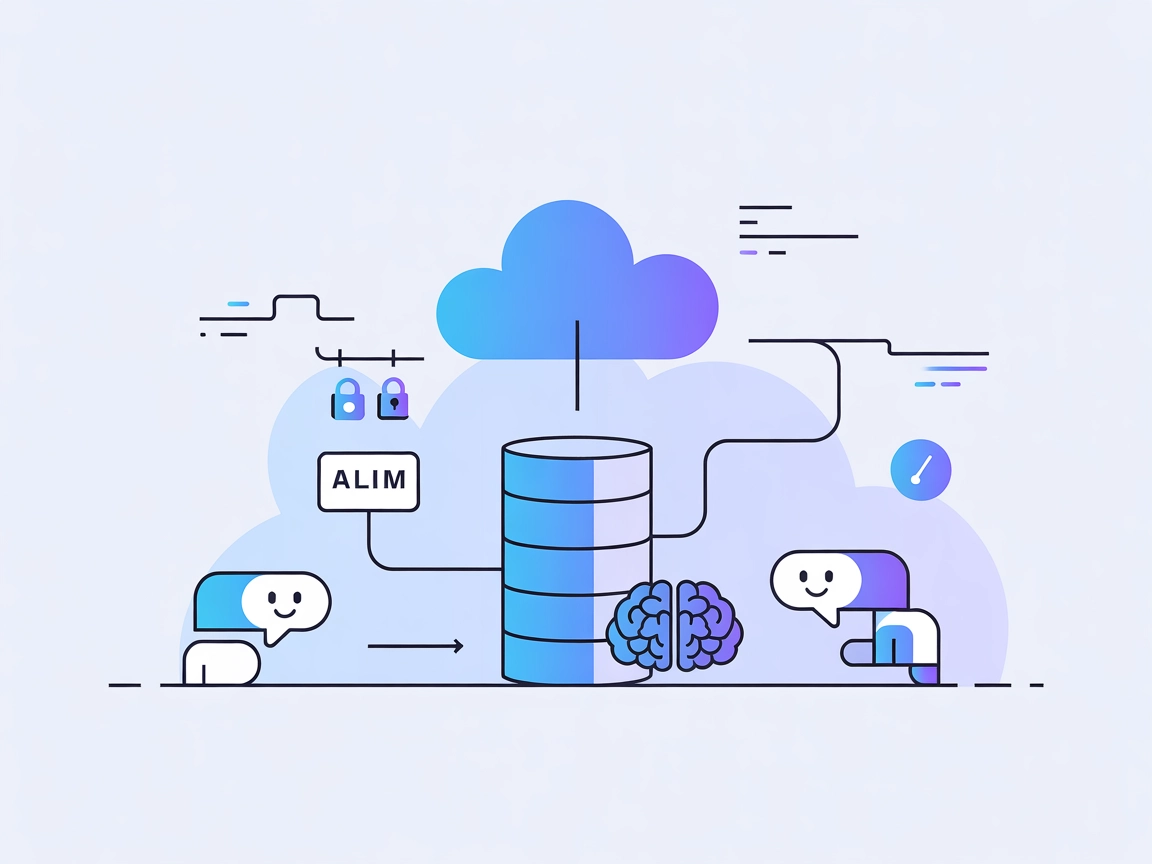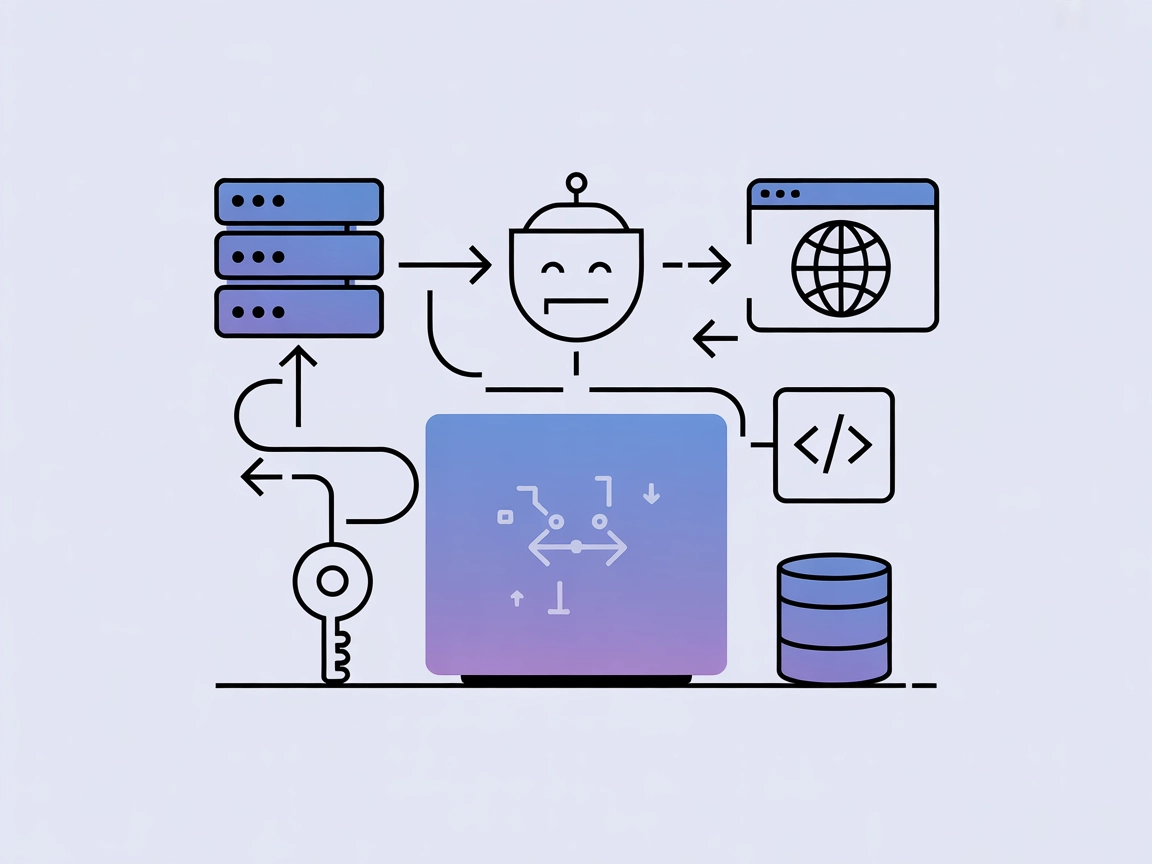
Vectorize MCP Server Integration
Integrate the Vectorize MCP Server with FlowHunt to enable advanced vector retrieval, semantic search, and text extraction for powerful AI-driven workflows. Eff...

Empower your FlowHunt AI agents with Qdrant MCP Server — a robust semantic memory and retrieval solution for contextual conversations and advanced knowledge searches.
FlowHunt provides an additional security layer between your internal systems and AI tools, giving you granular control over which tools are accessible from your MCP servers. MCP servers hosted in our infrastructure can be seamlessly integrated with FlowHunt's chatbot as well as popular AI platforms like ChatGPT, Claude, and various AI editors.
The Qdrant MCP Server is an official implementation of the Model Context Protocol (MCP) for the Qdrant vector search engine. Acting as a semantic memory layer, it allows AI assistants and LLM-powered applications to store and retrieve information within the Qdrant database. By exposing standardized MCP endpoints, the server enables seamless integration with external data sources, thus enhancing AI development workflows. Developers can leverage it to run vector-based queries, manage collections, and handle semantic memory for AI agents, making it ideal for tasks like knowledge retrieval, contextual memory storage, and advanced search operations in their applications.
No information about prompt templates is provided in the repository or documentation.
No explicit resources are documented or listed in the repository or documentation.
mcpServers object:{
"mcpServers": {
"qdrant-mcp": {
"command": "qdrant-mcp-server",
"args": []
}
}
}
mcpServers section:{
"mcpServers": {
"qdrant-mcp": {
"command": "qdrant-mcp-server",
"args": []
}
}
}
{
"mcpServers": {
"qdrant-mcp": {
"command": "qdrant-mcp-server",
"args": []
}
}
}
{
"mcpServers": {
"qdrant-mcp": {
"command": "qdrant-mcp-server",
"args": []
}
}
}
Securing API Keys using Environment Variables
Set required environment variables to secure your API keys. Example JSON configuration:
{
"mcpServers": {
"qdrant-mcp": {
"command": "qdrant-mcp-server",
"args": [],
"env": {
"QDRANT_URL": "https://your-qdrant-server.example",
"QDRANT_API_KEY": "your_qdrant_api_key"
},
"inputs": {
"COLLECTION_NAME": "your_default_collection"
}
}
}
}
Using MCP in FlowHunt
To integrate MCP servers into your FlowHunt workflow, start by adding the MCP component to your flow and connecting it to your AI agent:

Click on the MCP component to open the configuration panel. In the system MCP configuration section, insert your MCP server details using this JSON format:
{
"qdrant-mcp": {
"transport": "streamable_http",
"url": "https://yourmcpserver.example/pathtothemcp/url"
}
}
Once configured, the AI agent is now able to use this MCP as a tool with access to all its functions and capabilities. Remember to change “qdrant-mcp” to whatever the actual name of your MCP server is and replace the URL with your own MCP server URL.
| Section | Availability | Details/Notes |
|---|---|---|
| Overview | ✅ | Official Qdrant MCP server, semantic memory layer |
| List of Prompts | ⛔ | No prompt templates documented |
| List of Resources | ⛔ | No resources explicitly documented |
| List of Tools | ✅ | qdrant-store, qdrant-find |
| Securing API Keys | ✅ | Via environment variables; documented in README |
| Sampling Support (less important in evaluation) | ⛔ | Not mentioned |
Based on the available information, the Qdrant MCP Server is solid for its core functionality and setup clarity but lacks detailed prompt and resource documentation. It scores high for tool support and licensing, but more user guidance and advanced features would be beneficial.
| Has a LICENSE | ✅ (Apache-2.0) |
|---|---|
| Has at least one tool | ✅ |
| Number of Forks | 97 |
| Number of Stars | 695 |
MCP Table Score: 7/10
The Qdrant MCP Server provides clear core functionality, a proper license, and robust tool support. However, the absence of prompt/resource documentation and unclear advanced feature support prevents a higher score.
The Qdrant MCP Server is an official implementation of the Model Context Protocol (MCP) for the Qdrant vector search engine. It provides a semantic memory layer, enabling AI assistants and applications to store, retrieve, and manage contextual information using vector-based search.
The Qdrant MCP Server offers two main tools: 'qdrant-store' for storing information with optional metadata in the Qdrant database, and 'qdrant-find' for retrieving relevant information using semantic queries.
Add the Qdrant MCP Server to your workflow by configuring it in your FlowHunt or client application settings. Provide the command and connection details as shown in the setup guides for Windsurf, Claude, Cursor, or Cline. Use environment variables to secure API keys and specify your Qdrant server URL.
Typical use cases include semantic memory for AI agents, building knowledge base search systems, delivering personalized recommendations, and empowering contextual chatbots with dynamic memory and retrieval.
By acting as a semantic memory layer, the Qdrant MCP Server enables AI agents to remember past interactions, retrieve relevant contextual data, and provide more informed, coherent, and personalized responses.
Enhance your AI agents with semantic memory and vector search capabilities using Qdrant MCP Server. Seamlessly store, retrieve, and manage contextual knowledge within FlowHunt.

Integrate the Vectorize MCP Server with FlowHunt to enable advanced vector retrieval, semantic search, and text extraction for powerful AI-driven workflows. Eff...

The Wikidata MCP Server enables AI agents and developers to interact with the Wikidata API through the Model Context Protocol. It provides tools for searching e...

The AgentQL MCP Server integrates advanced web data extraction into AI workflows, enabling seamless structured data retrieval from web pages via customizable pr...
Cookie Consent
We use cookies to enhance your browsing experience and analyze our traffic. See our privacy policy.